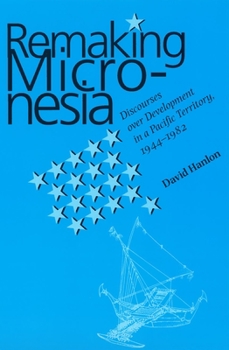Remaking Micronesia
Select Format
Select Condition 
Book Overview
America's efforts at economic development in the Caroline, Mariana, and Marshall Islands proved to be about transforming in dramatic fashion people who occupied real estate deemed vital to American strategic concerns. Called "Micronesians," these island people were regarded as other, and their otherness came to be seen as incompatible with American interests.
And so, underneath the liberal rhetoric that surrounded arguments, proposals, and programs for economic development was a deeper purpose. America's domination would be sustained by the remaking of these islands into places that had the look, feel, sound, speed, smell, and taste of America - had the many and varied plans actually succeeded. However, the gap between intent and effect holds a rich and deeply entangled history. Remaking Micronesia stands as an important, imaginative, much needed contribution to the study of Micronesia, American policy in the Pacific, and the larger debate about development. It will be an important source of insight and critique for scholars and students working at the intersection of history, culture, and power in the Pacific.Format:Paperback
Language:English
ISBN:0824820118
ISBN13:9780824820114
Release Date:March 1998
Publisher:University of Hawaii Press
Length:324 Pages
Weight:0.95 lbs.
Dimensions:0.8" x 6.0" x 9.0"
Customer Reviews
0 rating





